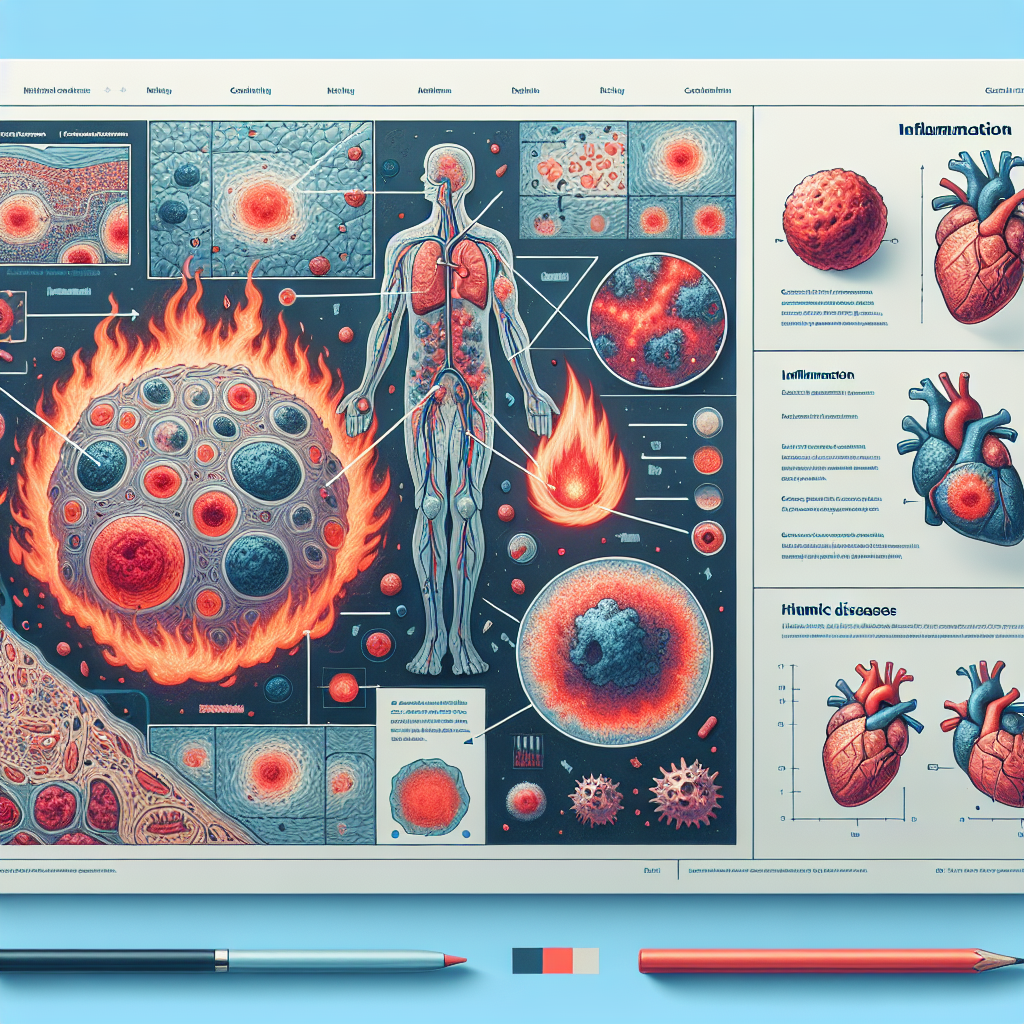Chronic diseases are long-term illnesses that are generally progressive. They include heart disease, stroke, cancer, type 2 diabetes, obesity, and arthritis. These illnesses are among the most common, costly, and preventable of all health problems. In recent years, there’s been an increasing amount of research looking into the link between inflammation and chronic diseases. This article aims to provide an in-depth understanding of inflammation, its role in the body, and its connection to chronic diseases.
What is Inflammation?
Inflammation is the body’s natural response to infection or injury. It’s a vital part of the immune system’s response, which produces inflammation to protect your body from harmful stimuli such as pathogens, irritants, or damaged cells. This inflammation response starts a series of events that allow your body to heal itself. When functioning properly, inflammation helps the body to heal by removing harmful stimuli and beginning the healing process. However, sometimes inflammation can persist longer than necessary, leading to chronic inflammation which can ultimately cause several diseases and conditions, including some cancers and rheumatoid arthritis.
The Role of Inflammation in Chronic Diseases
Chronic inflammation plays a significant role in the development and progression of many diseases. Prolonged inflammation can lead to a progressive shift in the type of cells present at the site of inflammation and can result in simultaneous destruction and healing of the tissue from the inflammatory process. This continuous cycle of inflammation and repair can damage tissues and contribute to disease progress.
Many lifestyle-related diseases, such as heart disease, stroke, and diabetes, have been linked to chronic inflammation. Inflammation affects all stages of heart disease, initiating plaque growth, promoting plaque progression, and provoking plaque rupture, the event leading to heart attacks. Likewise, in the case of diabetes, the role of inflammation has become evident as an essential contributing factor. Obesity causes an increase in fatty tissue that can lead to increased inflammation in the body, thereby leading to insulin resistance and type 2 diabetes.
A common thread among these diseases is chronic inflammation which creates an environment that fosters disease progress. Although inflammation is intended to be a process that helps to heal the body, its chronic, or ongoing, presence can lead to devastating impacts on the body’s overall health. In fact, chronic inflammation could be considered a common aspect of all chronic diseases.
Prevention and Treatment of Chronic Inflammation
It’s clear that reducing inflammation is a vital part of preventing and treating chronic diseases. On a basic level, this can be achieved through a healthy lifestyle. Regular physical activity and a healthy diet both have been shown to help reduce inflammation. Certain anti-inflammatory medications may also be used as part of a treatment plan for diseases associated with chronic inflammation. In many cases, healthcare professionals may also recommend dietary modifications, such as a Mediterranean-style diet, which is rich in fruits and vegetables that are known to have anti-inflammatory properties.
Conclusion
Indeed, inflammation plays a crucial role in the body’s defence mechanism. However, when inflammation becomes chronic, it paves the way for the development of multiple chronic diseases. Therefore, understanding the inflammatory response, identifying the triggers of chronic inflammation, and intervening appropriately are essential for preventing and treating conditions associated with chronic inflammation. Regular physical activity, a balanced diet, and appropriate medical intervention remain key to controlling inflammatory response and thereby preventing the development and progression of chronic diseases.
FAQs
-
What is chronic inflammation?
Chronic inflammation is a prolonged and persistent form of inflammation lasting for several months to years and can result in tissue death and fibrosis (scarring).
-
What diseases are linked to chronic inflammation?
Diseases like heart disease, cancer, diabetes, and arthritis, among others, are linked to chronic inflammation.
-
How can I reduce inflammation in my body?
Maintaining a healthy diet and regular exercise are simple ways to reduce inflammation. Certain medications and dietary supplements can also aid in reducing inflammation.
-
What are the signs of chronic inflammation?
Fatigue, fever, rashes, abdominal pain, mouth sores and chest pain are among the signs of chronic inflammation.
-
Could chronic inflammation be the cause of my fatigue?
Fatigue can indeed be a sign of chronic inflammation, but it’s always best to consult a healthcare professional if you’re experiencing persistent fatigue.

Leave a Reply